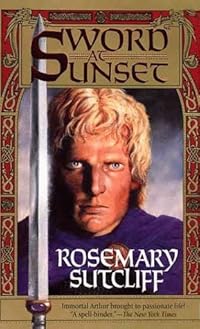Status
Call number
Collection
Publication
Description
This brilliant Arthurian epic cuts through the mists of pagan, early Christian, and medieval splendors that have gathered about the subject and tells the authentic story of the man who may well have been the real King ArthurArtos the Bear, the mighty warrior-king who saved the last lights of Western civilization when the barbarian darkness descended in the fifth century. Presenting early Britain as it was after the departure of the Romansno Round Table, no many-towered Camelotthe setting is a hard, savage land, half-civilized, half-pagan, where a few men struggled to forge a nation and hold back the Saxon scourge. Richly detailed, the story chronicles the formation of a great army, the hardships of winter quarters, the primitive wedding feasts, the pagan fertility rites, the agonies of surgery after battle, the thrilling stag hunts, and the glorious processions of the era. Stripped of the chivalric embellishments that the French applied to British history centuries ago, the Arthurian age here emerges as a time when men stood at the precipice of historya time of transition and changing values and imminent national peril.… (more)
User reviews
First read in 1963, and lotsa dipping since.
later French addition. Sutcliff accurately follows the theories
Artos and indeed all the other characters spring fully-formed onto the page, and there is no personal development whatsoever. Mary Stewart's Arthur, on the other hand, and all her characters, are portrayed in a much more fascinating way. I wonder if Mrs Stewart read this and thought "I'll have a go at depicting a Dark Ages Arthur"; there are some interesting correspondences with some of the Sutcliff characters, particularly Ambrosius. 1963 for this book, 1970 for the Crystal Cave.
The scene-setting and description and action are brilliant though, as one expects from Ms Sutcliff. And note the reappearance of Aquila from "The Lantern Bearers", and the way the flawed emerald ring is handed on.
